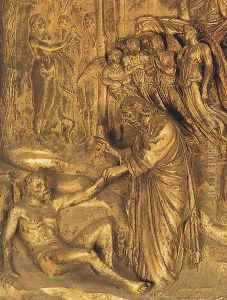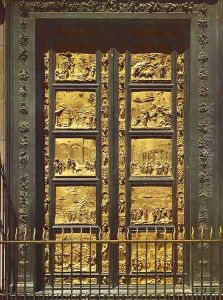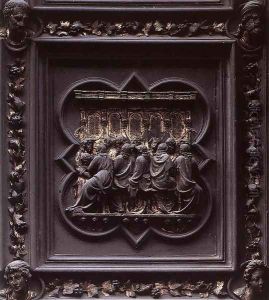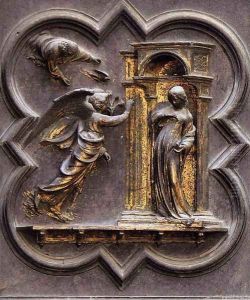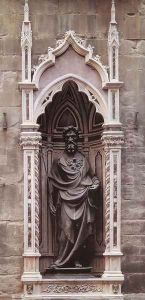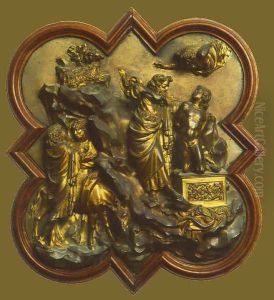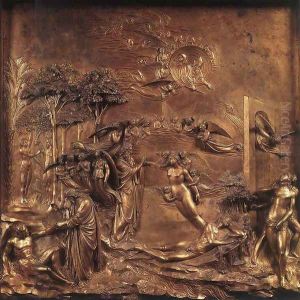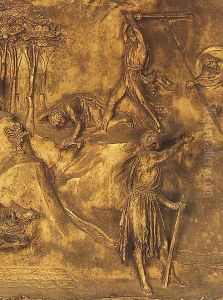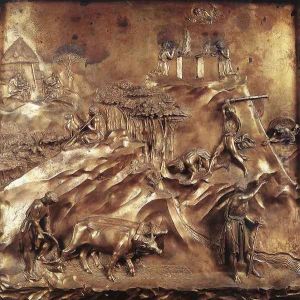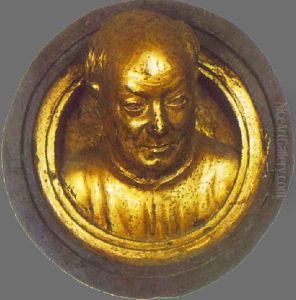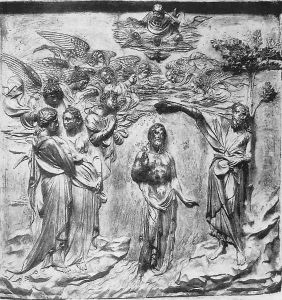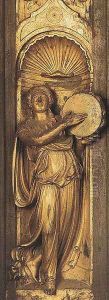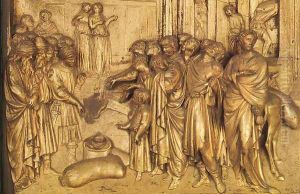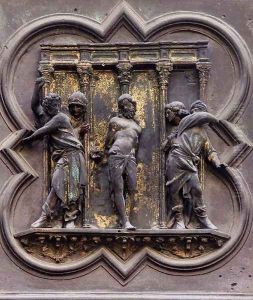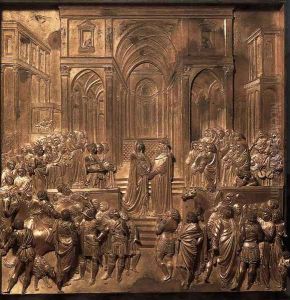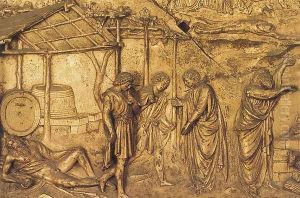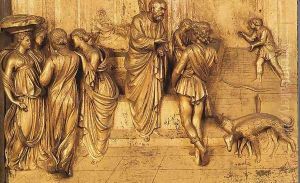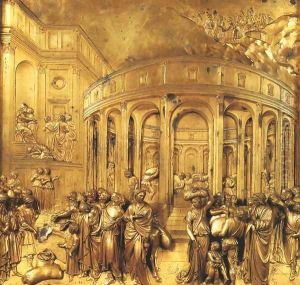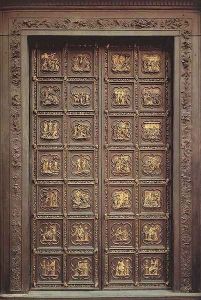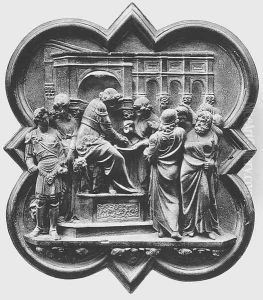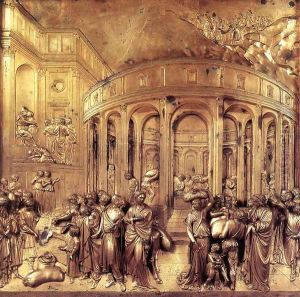Lorenzo Ghiberti Paintings
Lorenzo Ghiberti was a renowned Italian artist of the early Renaissance period, celebrated for his work in sculpture and metalwork. Born in Florence in 1378, Ghiberti was initially trained as a goldsmith by his stepfather, Bartolo di Michele, which provided him with a foundation in the precise and detailed work that would characterize his later artistic endeavors.
Ghiberti's early fame stemmed from his winning of a competition in 1401 to design the north doors of the Florence Baptistery, which set the stage for his lifelong masterpiece, the Gates of Paradise. These bronze doors, richly adorned with scenes from the Old Testament, are considered one of the great masterpieces of the early Renaissance and showcase Ghiberti's skill in creating depth and perspective in relief sculpture, a technique that was revolutionary at the time.
Throughout his career, Ghiberti remained in Florence, where he operated a successful workshop. He worked on various commissions, including bronze statues and other works of art for local churches and institutions. His contribution to the art of the Renaissance was not limited to his own work; Ghiberti was also a teacher and a writer. He penned 'Commentarii,' an autobiography that includes discussions of his own work and that of other artists of his time, which is an invaluable resource for understanding the art and culture of the period.
Ghiberti's influence extended beyond his immediate circle as he influenced the next generation of artists, including greats such as Donatello and Michelangelo. His work reflected the transition from the Gothic style to the more naturalistic style of the Renaissance, and his attention to detail and his ability to convey complex narratives in his reliefs are still admired today.
Lorenzo Ghiberti passed away in Florence in 1455, leaving behind a legacy as one of the most important sculptors and metalworkers of the Renaissance. His work continues to be studied and revered for its beauty, technical skill, and historical significance.
